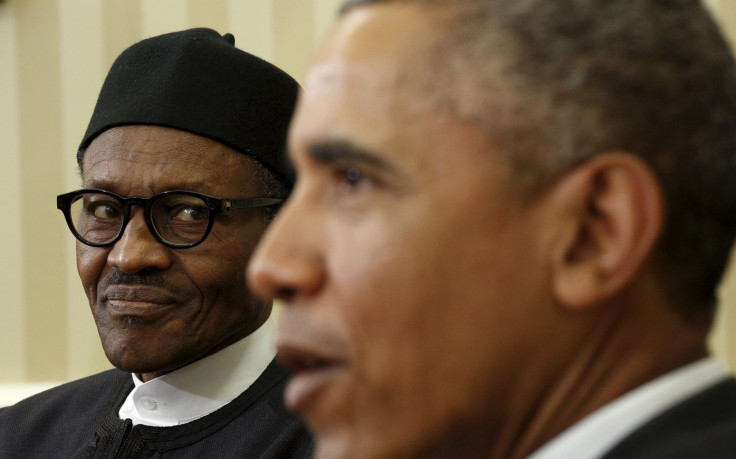Nigerian President Says United States Weapons Ban Helps ISIS Affiliate Boko Haram

Two days after meeting with U.S. President Barack Obama at the White House, Nigerian President Muhammadu Buhari told an audience in Washington, D.C., that a refusal of the United States to provide arms to Nigerian troops benefits Boko Haram, the jihadist group based in northern Nigeria. Buhari criticized the 18-year-old U.S. law forbidding the provision of weapons to the Nigerian army because of past human rights violations.
The former general, speaking at he United States Institute of Peace, suggested that Nigerian forces were left "largely impotent" against Boko Haram's bombings, kidnappings and attacks without weaponry from the United States, reports Agence-France Presse. While the U.S. government has supported Nigeria's efforts to defeat the jihadist militants, it is prohibited from selling weapons to nations with recorded human rights violations after the Leahy Law, which was passed in 1997.
"Regrettably, the blanket application of the Leahy Law by the United States on the grounds of unproven allegations of human rights violations leveled against our forces has denied us access to appropriate strategic weapons to prosecute the war," he said, reports AFP, adding that the Nigerian army "do not possess the appropriate weapons and technology which we could have had if the so-called human rights violations had not been an obstacle."
Amnesty International released a report in June criticizing senior Nigerian military officials for human rights violations and war crimes, including extrajudicial executions and torture, according to AFP. Buhari has replaced his senior military commanders, but he has argued that the charges are unfounded.

At his meeting with Buhari on Monday, Obama praised Nigeria for its successful democratic election in March. Buhari replaced Goodluck Jonathan in the first democratic transition to an opposition in Nigeria since the end of military rule in 1991. Despite the election and one of the strongest economies in Africa, Nigeria has faced a wave of terror amid attacks from the Islamic separatist group Boko Haram. In their meeting, Obama praised Buhari for his work against the militants.
"President Buhari comes into office with a reputation of integrity and a very clear agenda and that is to make sure that he is bringing safety and security and peace to this country," Obama said, adding Buhari was committed to curbing the spread of Boko Haram, reports the Washington Post.
In November 2014, the Nigerian ambassador to the United States under former Jonathan also condemned Washington for refusing to sell weapons to state forces to combat Islamic militants.
"The U.S. government has up till today refused to grant Nigeria's request to purchase lethal equipment that would have brought down the terrorists within a short time,'' Adebowale Ibidapo Adefuye told members of the New York-based Council on Foreign Relations in 2014, reported the BBC. "We find it difficult to understand how and why, in spite of the U.S. presence in Nigeria with their sophisticated military technology, Boko Haram should be expanding and becoming more deadly.''
© Copyright IBTimes 2024. All rights reserved.






















